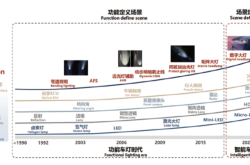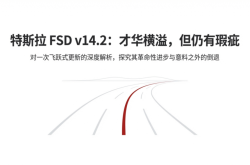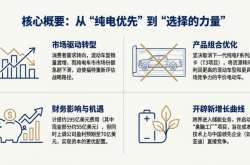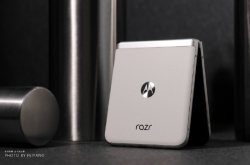1199 yuan! NetEase Youdao's "Pen" Breaks Boundaries, Redefining AI-Powered Education for All
![]() 08/21 2025
08/21 2025
![]() 510
510
In recent years, AI's influence in education has reached unprecedented heights. With the relentless advancement of large model technology, users' expectations for educational AI have soared: parents yearn for a replacement for tutoring classes, while students desire instant answers to their queries. But how far can AI in education truly go?
On August 20, NetEase Youdao provided fresh insights at the "POWERED BY Ziyue" Youdao AI new product launch event in Beijing. The company unveiled the AI answer pen Space X and an integrated audio-video translation platform, alongside showcasing the fully AI-enabled Youdao Dictionary.
These products share a common foundation: NetEase Youdao's "Ziyue Education Large Model." They aim to infuse the reasoning, interaction, and multimodal capabilities of large models into real-world learning scenarios. Notably, this move signals a shift in the AI education landscape, emphasizing ease of use and the potential to "liberate" some of the teachers' roles.
Particularly, the launch of the AI answer pen Space X directly addresses the long-standing need for "instant answers" among K12 students and parents. With its core feature of "answering questions anytime and anywhere," it stole the show, offering a more affordable price starting at 1199 yuan, down from 1699 yuan for its predecessor, SpaceOne.
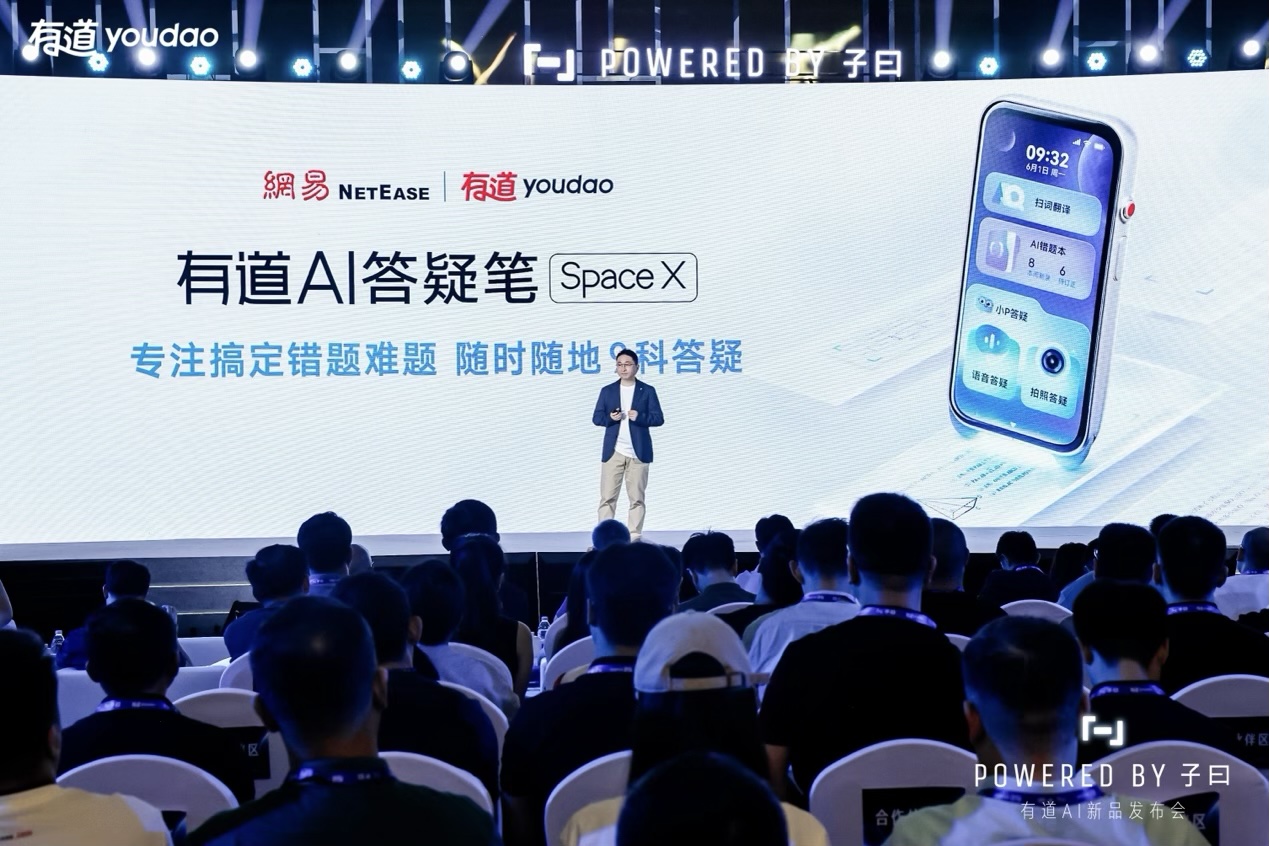
Image source: NetEase Youdao
The amalgamation of screen, battery life, mobile network connectivity, portability, and AI is not just a response to market demands but a bold attempt by NetEase Youdao to redefine the AI education experience. While manufacturer conferences often brim with confidence, what truly matters is the real-world experience and whether these products can genuinely alter the daily routines of students, parents, and teachers.
Many might recall NetEase Youdao's earlier AI learning hardware, SpaceOne, which our team at Leitech experienced and reviewed in real-time: "After experiencing Youdao SpaceOne, I feel that DeepSeek learning hardware is about to explode." Both our experience and subsequent feedback confirmed that SpaceOne met genuine needs, evolving towards becoming a "personal AI teacher for all subjects."
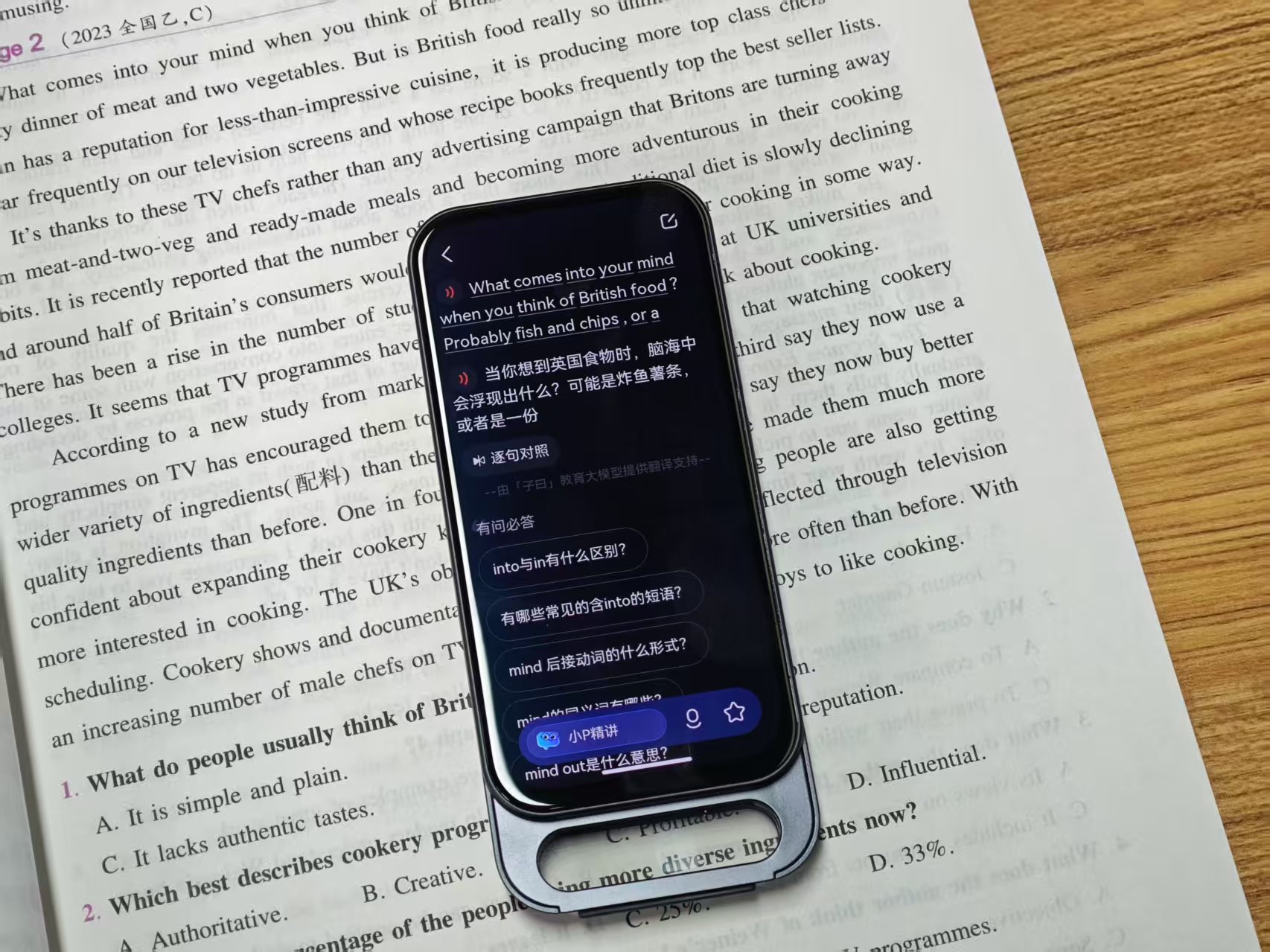
SpaceOne, image source: Leitech
Identifying a need is one thing; optimizing and iterating the experience is another. While SpaceOne validated the correct direction, there's ample room for further iteration. According to NetEase Youdao, the new AI answer pen Space X has undergone a comprehensive upgrade in scanning interaction, answer explanation, and hardware configuration.
The most immediate improvement lies in the enhanced "scan question" ability. A 3.6-centimeter-wide pen tip paired with smart puzzle technology ensures that long or multi-figure questions can be input seamlessly, preventing interruptions during critical moments due to "incomplete scanning." If the input process is more cumbersome than solving the problem itself, the value of AI is questionable, especially considering "scanning questions" as one of the core interactions for such products.
The AI answer explanation is another significant upgrade in Space X. Unlike past simple text and voice answers, it now includes blackboard-style video answers, illustrating the "thinking process," making the learning experience closer to a real classroom setting.
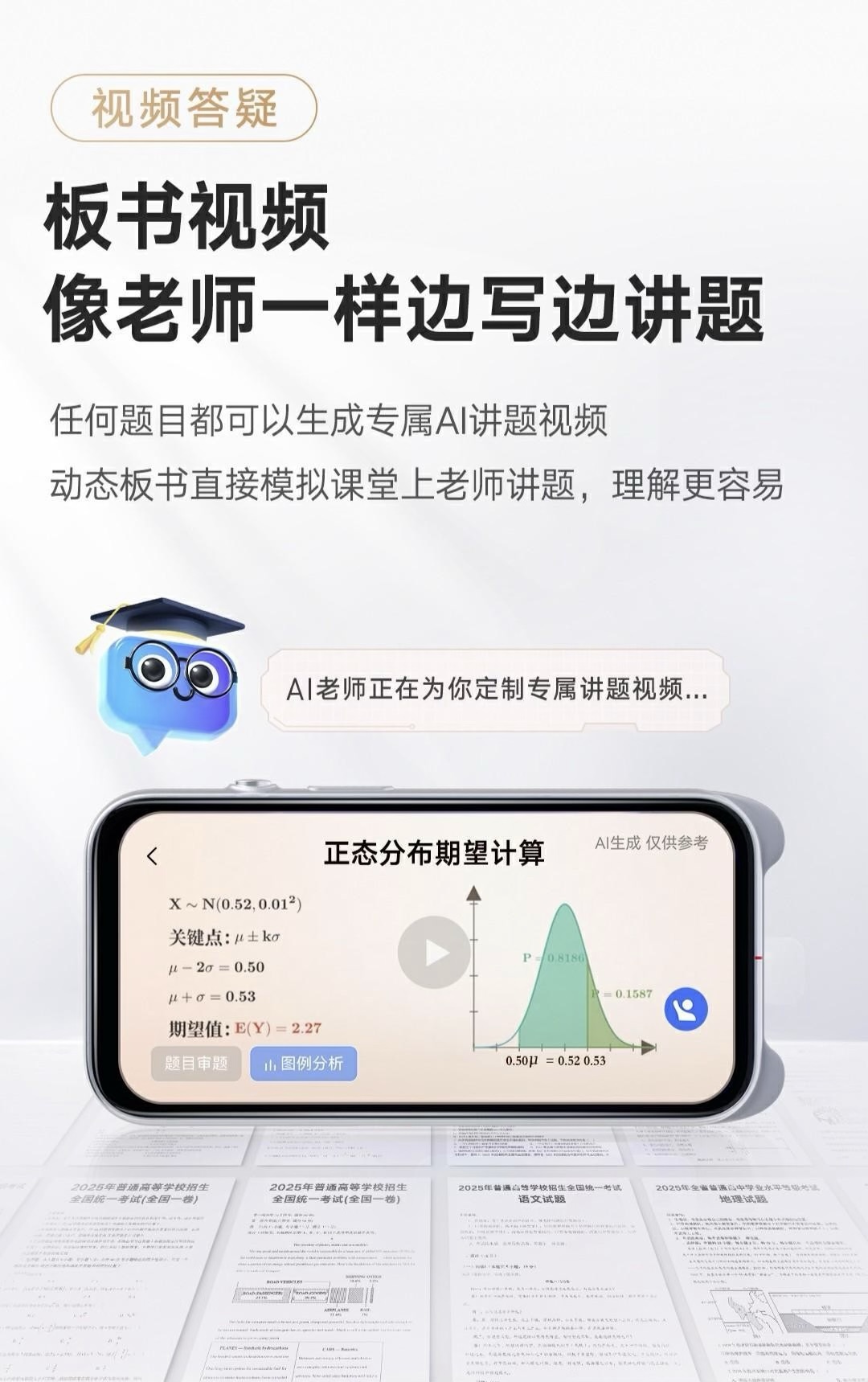
Image source: NetEase Youdao
For many students, the real challenge isn't understanding the answer but visualizing the problem-solving path. If AI can intuitively present this process, it not only solves individual problems but subtly teaches students the way of thinking.
Furthermore, Space X introduces a practical "AI error book" feature, automatically organizing frequently missed questions and generating targeted practice. While this might not seem novel, its significance lies in creating a closed loop between answering questions and consolidating knowledge, moving beyond mere "asking and forgetting." For parents, this may be more valuable than just answering questions, as the system can capture and repeatedly practice the child's weaknesses, preventing repeated forgetfulness.
In terms of hardware, Space X aligns closer with the vision of a "personal AI teacher for all subjects." With a 4.4-inch OLED screen, 13-millimeter thickness, 105-gram weight, and a 2350mAh battery, it balances portability and battery life. Besides the WiFi version (1199 yuan), Space X now also offers a 4G version (1399 yuan). While slightly pricier, it enables students to connect to the internet and ask questions anytime, anywhere.
These details might seem simple but hit a crucial point: making answering questions and doubts possible "anytime and anywhere."
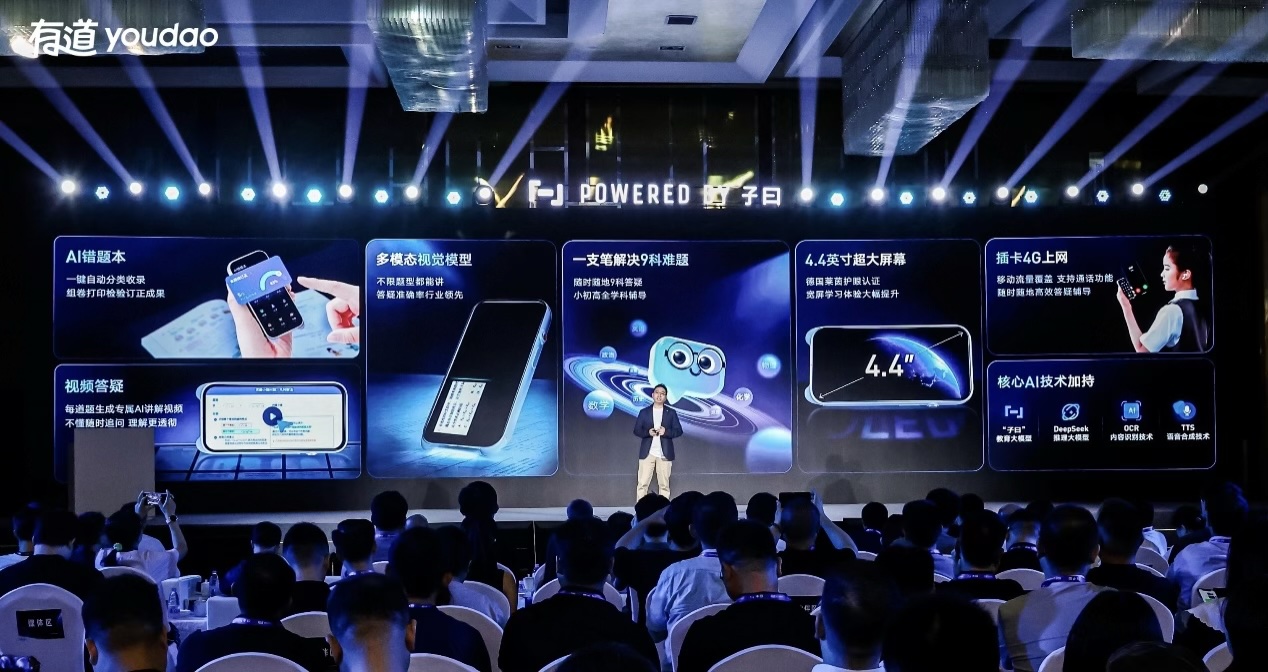
Image source: NetEase Youdao
All this is underpinned by the Ziyue education large model, providing Space X with the capability to understand complex problem types, generate visual explanations, and track wrong questions. Technically, this pen is a "hardware shell," with the real soul residing in the large model. In essence, Space X isn't just an AI terminal in pen form but a deep exploration of large models in learning scenarios.
From an outsider's perspective, NetEase Youdao's ambition for the AI answer pen is evident; it aims to go beyond being a mere "auxiliary tool" in the learning process to replace some functions of after-school tutors.
Whether students will embrace it as a "teacher" and parents trust its explanations remains to be seen, requiring time to test. Nonetheless, Space X's debut has undeniably brought this possibility closer to the forefront for students and parents.
If the AI answer pen Space X is Youdao's "personal AI teacher for all subjects" tailored for students, the fully AI-enabled Youdao Dictionary targets a broader learning and working population. For many, "Youdao Dictionary" has been a staple throughout language learning, from school days to the workplace. The AI-powered Youdao Dictionary transcends the traditional "dictionary" definition, evolving into a comprehensive AI translation and efficiency tool.
The new version of Youdao Dictionary boasts not just interface simplicity but a significant upgrade in underlying capabilities. At the conference, Youdao highlighted enhancements in AI simultaneous interpretation's recognition ability, translation coverage, and translation quality, maintaining high-precision recognition in noisy environments, adding 71 languages and 125 accents (including Cantonese and Indian English), and improving understanding in specialized fields like finance, medicine, and chemistry.
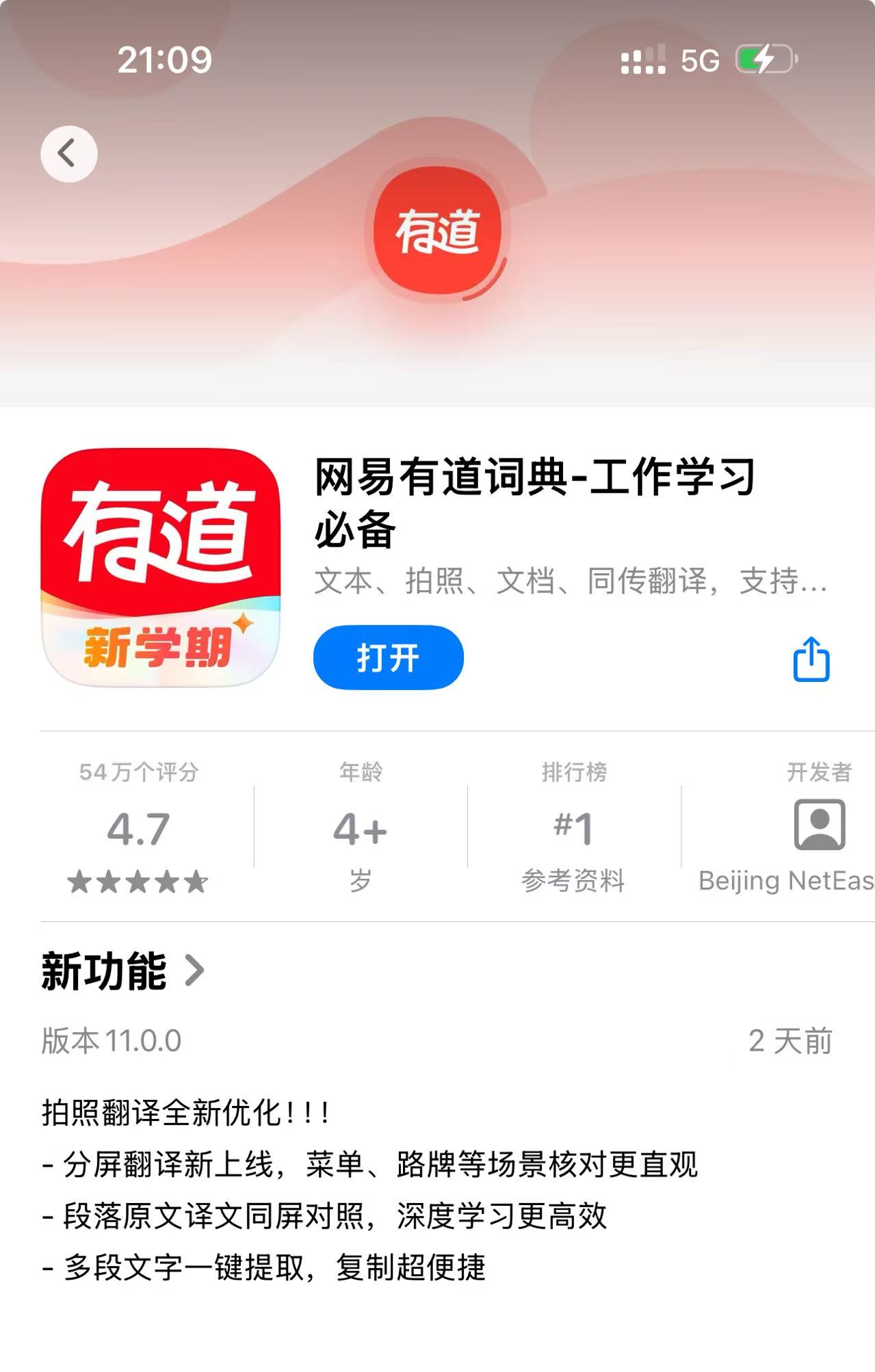
Image source: App Store
More crucially, it no longer translates foreign languages word-for-word into Chinese but generates summaries and mind maps during translation, transforming single language conversion into "information organization." For users in meetings or classes, this means receiving not just simultaneous translation results but also "structured knowledge extraction." This signifies Youdao Dictionary's "AI transformation," moving beyond helping users "understand" information to assisting them in "processing" it.
In today's information-overloaded world, this upgrade seems tailor-made for current demands.
Remarkably, Youdao has extended this AI translation capability to the B-end, unveiling a new audio-video translation platform at the conference. Unlike the dictionary's personal focus, this platform directly targets scenarios like overseas enterprises, short videos, and film and television production, featuring "one-stop AI video experts."
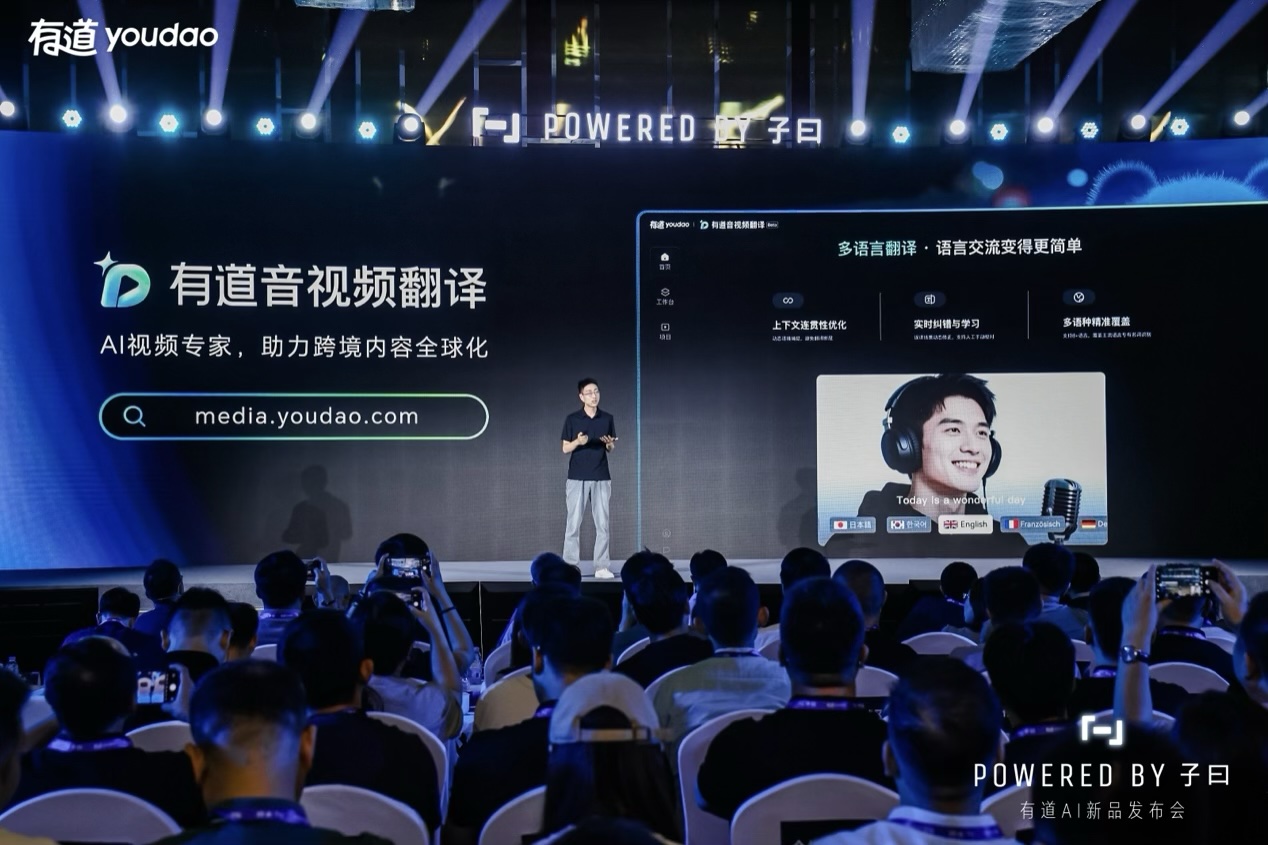
Image source: NetEase Youdao
According to the official statement, this platform can complete the entire process of "listening-recording, recognition, translation, and dubbing." In simple terms, it translates videos into other languages while retaining the speaker's timbre and emotion. Behind this is Youdao's self-developed Adaptive Voice Cloning engine, which quickly learns an individual's voice characteristics, avoiding the stiffness of traditional machine translation or dubbing.
The efficiency and cost comparison are also compelling; processing a 10-minute video takes just 3 minutes, compared to the industry average of 20-30 minutes, at one-tenth of the industry's price. For short video teams and cross-border enterprises aggressively "going overseas," this not only reduces costs but multiplies content production capacity.
Especially in the fiercely competitive landscape of platforms like TikTok and YouTube, multilingual and multicultural content translation is almost a prerequisite for international success.
If the new products at this conference are the answers to users, the Ziyue education large model serves as a footnote for the industry. According to Youdao, Ziyue has passed the China Academy of Information and Communications Technology's Trusted AI Education Large Model Evaluation, obtaining the highest 5-level rating.
However, more crucial than the "rating" is the evolution of AI capabilities fueled by the continuous iteration of large models. While general large models excel in generation and dialogue, education demands more than just answers; it requires the presentation of processes, the inspiration of thinking, and the ability to continuously track progress.
Returning to today's new products, the AI answer pen X further enhances "instant answers," Youdao Dictionary transforms from a "word search tool" to an "AI efficiency tool," and the audio-video translation platform addresses the pain points of overseas and cross-border content.
Next, the direction for AI implementation's evolution may become clearer. On one hand, continue making "AI anytime, anywhere" more user-friendly at the hardware and application layers. On the other hand, promote industry consensus through grading standards and open-source practices. While it's still uncertain how quickly AI efficiency will become the "norm," at least, from today's conference, this path is becoming increasingly evident.


